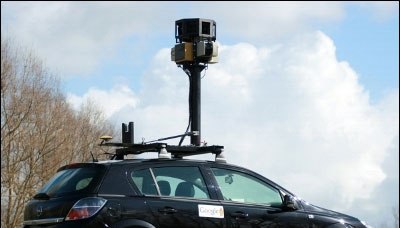US Senators Quiz Google On WiSpy Incident

Thirty-eight US states are investigating Google’s WiFi data collection which was done with Street View cars
Thirty eight states led by Connecticut Attorney General Richard Blumenthal on 21 July asked Google whether it had tested its Street View software was intended to collect data from unsecured wireless computer networks.
Blumenthal, who has aggressively defended Connecticut against perceived threats to consumer privacy regarding social networks such as Facebook and MySpace, threatened to sue the company if he does not receive answers to his questions.
Google admitted on 14 May that its Street View cars had stored 600GB of WiFi network payload data for the last three years in more than 30 countries and regions all over the world. This included fragments of citizens’ e-mails, Web browsing data and password information.
Google insisted the data collection was the result of rogue code placed on its servers to collect WiFi data to improve the company’s location-based services.
Collect WiFi Data
Blumenthal’s latest questions are aimed at teasing out culpability. He asked whether the company’s program was designed to collect WiFi data and whether Google tested its Street View software before use. This action, he argued, would have revealed that the program collected data transmitted over wireless computer networks.
He further wondered and whether it has sold or used technical network information collected by the Street View cars. “Google’s responses continue to generate more questions than they answer,” Blumenthal said in his statement. “We are asking Google to identify specific individuals responsible for the snooping code and how Google was unaware that this code allowed the Street View cars to collect data broadcast over WiFi networks.”
He also wants to know how the “spy software” was included in Google’s Street View serves, as well as specific locations where unauthorised data collection occurred.
Google reiterated its position in a statement to eWEEK on 21 July: “As we’ve said before, it was a mistake for us to include code in our software that collected payload data, but we believe we did nothing illegal. We’re continuing to work with the relevant authorities to answer their questions and concerns.”
WiSpy Case
Blumenthal begin looking into the so-called WiSpy case in June, holding a conference call with his counterparts in more than 30 states to decide whether or not to investigate the issue.
On 21 June, he agreed to lead a multistate investigation into Google’s data collection practices.
“We will take all appropriate steps — including potential legal action if warranted — to obtain complete, comprehensive answers,” Blumenthal said.
“Consumers have a right to expect that data transmitted over personal and business wireless networks remains confidential. Our multistate investigation will determine whether laws were broken and whether legislation is necessary to prevent future privacy breaches.”
Meanwhile, Google has been working with affected countries to delete the data or disclose what data was collected in each region.
The company on 9 July removed WiFi equipment from all of its Street View vehicles.